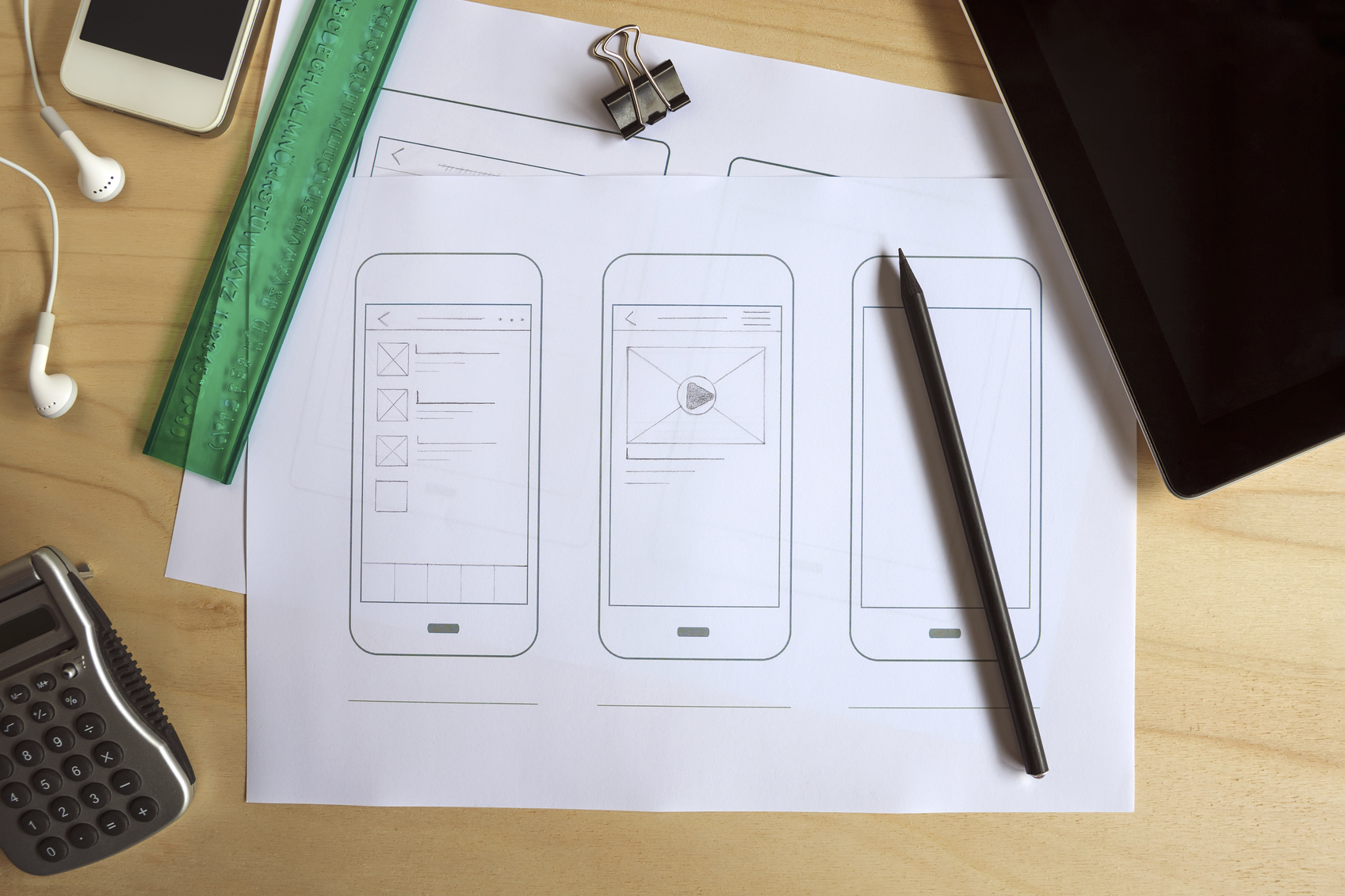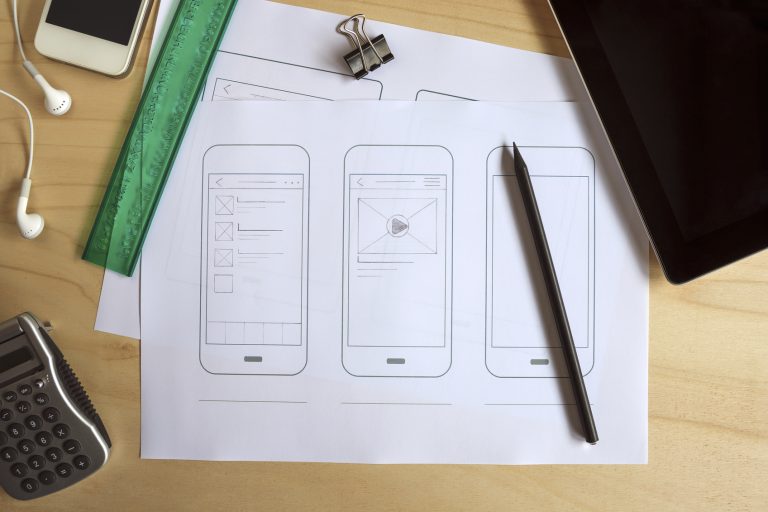The mobile industry is booming, mobile ads are a hot topic, businesses are investing in mobile apps, and the question is, where do you stand? If your business is seeking a partner agency to develop your mobile app, there are some key questions you need to ask the agency directly. The answers will give you a clear picture if this is the team you think will work best with not just your budget, but your own team, to launch a successful app. Have you thought internally about app development?
Ask Your App Developer
1. Are you building a web app or a native app?
Knowing the difference, and knowing which direction you want to grow is key. What functionality do you need? Some functionality is better suited to native, and some to web. This can make a big impact on cost, but cost should not necessarily be the determining factor. Consider the human being on the other end engaging with this app, what do you want them to see, learn, and explore?
2. If you are developing a native app are you writing it in native code or using cross compilers like PhoneGap or Titanium?
Know the difference. Do the research. Don’t let an agency wow you with a fancy presentation or smooth sales pitch. Instead, enter the conversation with some basic knowledge and ask tons of questions. They should also be asking you a lot of questions, not blasting you with their accomplishments. Knowing your target market and budget will help determine if you should focus on iPhone and/or Android, or if you should look into BlackBerry and Windows Phone.
Always consider the human user on the other end. Developing for specific platforms ensures a experience tailored to each device, rather than a catchall that may not offer the user a full experience based on limitations of the device. While this is generally more costly, it saves users from becoming frustrated and associating that frustration with your business.
3. Is your development team in house?
While some may overlook this vital piece of information, it’s always good to know if your project is being done locally, so if you visit for a meeting or ask for progress, the agency is knowledgeable and able to share with you immediately. Outsourcing can often cause a disconnect in understanding, communication, and ultimately the final product. We pride ourselves in personally working with each of our partners and showing them our progress as we go.
4. Are you able to build a database and web system, if needed to run the app?
Do you need a database and web system to capture information? Are you trying to integrate external services with your app? Understanding at least the basics of what you need in the app will help the conversation flow much better. The last thing you want is an app that you expected to connect with an internal system that does not. Know if there’s an existing API or if the agency can build that bridge for you. It’s not an easy task, but it’s definitely doable with experienced development agencies.
5. Can you build apps for different operating systems: iOS, Android OS, etc.?
This goes back to offering a unique experience to users with specific devices. Coding for iOS is not the same as coding for Android OS. Despite what some may think, it is not a one size fits all situation. Even within iOS, an iPhone app is not an iPad app. Have you ever “2x””d an iPhone app on an iPad? You probably discovered that enlarging images sized for iPhone to iPad-size makes them grainy. That’s not putting your best foot forward in the mobile space, but it is a start.
6. Who’s on my team? Project Manager, Designer and Developer? Will I have one central point of contact?
When working with an agency, you want a human being to speak to, not a phone tree. You don’t want to get shuffled around; you want to feel comfortable knowing that someone is taking the lead and working with you as the liaison for the agency. This point of contact should coordinate your needs and communicate them to the team and keep you posted as your project moves forward.
7. Samples of your work.
Always look at past work. If the agency’s prior work is sloppy, has poor reviews, and is not well-designed, rethink working with them. Make sure you can tell that they take pride in their work by the quality, the attention to detail, and the kind of work that you’d be happy to show off. Ask questions about relevant projects and listen to the agency explain the work they did. Can they detail the process, and how they arrived at the end product? If not, that’s a red flag that they won’t be able to lead you through your own app development process.
8. What is your process? Work flow?
Compatibility is key. Both agency and client need to fit together, in terms of personality, values, and work style. If you are only at work in the evenings or weekends, it may be best to choose a team that also keeps those hours, or would be willing to stay late at least occasionally for phone calls, meetings, or Skype sessions. Always ask about the company’s process and their internal work flow. Do you want to receive daily or weekly updates, or would you prefer to stand back and wait to approve a final product? Are you most focused on speed, quality, or cost? Keep in mind you can only have two of the three at once! Discuss these and other considerations before signing anything. Starting off with at least a basic understanding of the other party will nurture trust within the partnership and give you the confidence that the team will work to ensure the quality of the final product.
9. Will the code be mine?
This is a question we get a lot. Any custom project that an agency does for a client should always be completely owned by the client. You are paying the dollars for the work, it should remain in your hands. If ever you decide to take the project elsewhere, having the work that was done will be a road map for another development agency to follow. You’ll also need access to the app’s analytics and any database or web systems built alongside it. Ask your team how they plan to deliver these files and documents to you when the project is complete. Consider that you must purchase any stock images on your own account and register your website domain on your own account, as these licenses are difficult to transfer should you ever want to end your relationship with your app developer.
Don’t let them hold you or your work hostage!
10. How do you manage updates?
App users expect regular updates; users leave reviews expecting their concerns to be addressed. So, it will be key for you to understand how updates are managed. Know the cost of those updates ahead of time. Some apps will require a monthly retainer that covers pre-determined updates, and others just need periodic updates, which can be quoted per update. Also consider the timing of maintenance and updates – for the iTunes App Store, updates can take up to two weeks for approval. Knowing this may also be a factor in your updating decision.
App-ly
Bring the questions above into the meeting you have planned with your development agency of choice, and apply what you’ve learned from this article and your own research. Be sure that you’re satisfied with the answers. If you have anyone on your team who understands app or even website development, bring that person to the meeting. Maybe it’s your CTO, IT Manager, or your Online Marketing Manager – this person can help facilitate the discussion by asking the right questions and making sure the agency has your best interests in mind.
If you have questions about app development or about our process, let us know by sending us an email at info@swebdevelopment.com or leaving a comment below.

